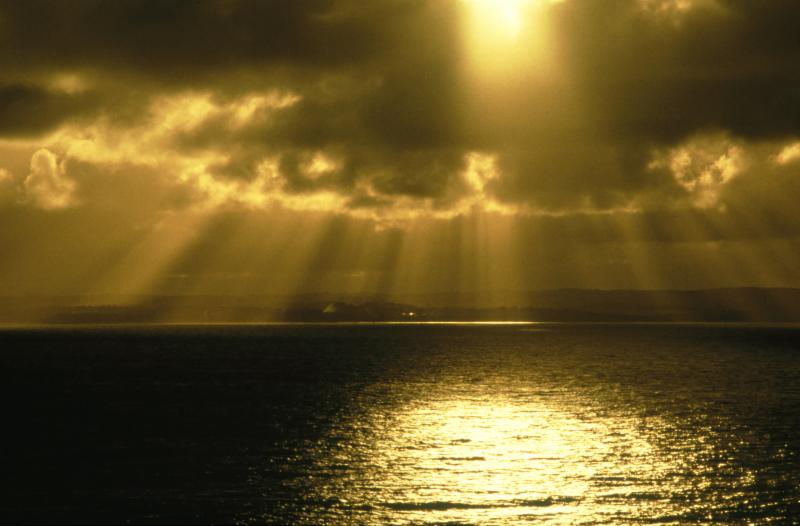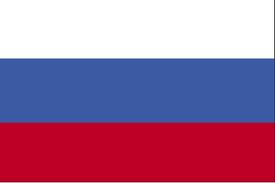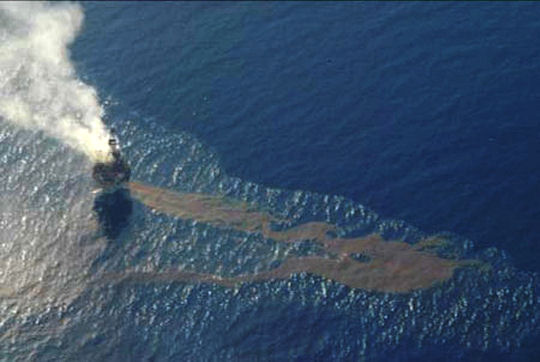|
|
|
|
|
|
|
|
5th European Conference on Permafrost, June 23-July 1, 2018 (Chamonix-Mont Blanc, France). In the continuation of the International and Regional conferences convened by the International Permafrost Association, the 5th European Conference on Permafrost (EUCOP 2018) will be held in Chamonix-Mont Blanc, France, 23rd June - 1st July 2018. The conference aims at covering all relevant aspects of permafrost research, engineering and outreach on a global and regional level. Conference website: here.
|
Media
 A Huge Stretch of the Arctic Ocean is Rapidly Turning into the Atlantic. A Huge Stretch of the Arctic Ocean is Rapidly Turning into the Atlantic. That's not a Good Sign. Scientists studying one of the fastest-warming regions of the global ocean say changes in this region are so sudden and vast that in effect, it will soon be another limb of the Atlantic Ocean, rather than a characteristically icy Arctic sea. The northern Barents Sea, to the north of Scandinavia and east of the remote archipelago of Svalbard, has warmed extremely rapidly - by 2.7 degrees Fahrenheit just since the year 2000 - standing out even in the fastest-warming part of the globe, the Arctic. The Washington Post
Defense Secretary Affirms Alaska's Role in Homeland Defense, Pacific and Arctic Regions. U.S. Defense Secretary Jim Mattis says the U.S. military increasingly relies on Alaska, both to provide a base of operations to maintaining dominance of the Indian and Pacific oceans to the south and to enable the Coast Guard and Navy to maintain control of U.S. Arctic waters, to the north. Mattis spoke at a news conference this morning at Eielson Air Force Base. Mattis stopped over at Eielson on the first of a five-day trip to Asia, where he'll meet separately with Chinese, South Korean and Japanese officials. He told reporters at Eielson this morning before resuming his trip that the military sees Alaska as the key to the U.S. military's policy of maintaining dominance of what he calls the Indo-Pacific region. KUAC
 Russian Scientists Begin Soil Pollution Research on Yamal. Russian Scientists Begin Soil Pollution Research on Yamal. A group of Russian scientists received a grant from the Russian Fund for Fundamental Studies to analyze soil pollution in all cities and towns in the Yamalo-Nenets Autonomous Region. The project will last for three years, an expert of the Scientific Center for the Arctic Studies Roman Kolesnikov told TASS. "Presently, there are certain problems with thorough analysis of the soils there, there are gaps in information about dynamics of changing agricultural landscape, and about sources of the soil's poly-chemical pollution," he said. "Thus, this project is important and timely for the region." TASS
Dangerous Climate Change is Likely, Concludes New Research. A new study has revealed sensitive regions of the world are still at risk from the dangerous and potentially irreversible effects of climate change; even if we meet the target of not increasing global temperature above 1.5°C over the next 100 years. The research, led by The Open University in collaboration with the University of Sheffield, reviewed the targets set in the 2015 Paris Climate Agreement and concluded that regions of the world, such as the Arctic and South-East Asian monsoon region, could be damaged irreversibly as they are particularly sensitive to changes to global temperatures. Phys.org
|
|
Future Events
 Coastal Response Research Center Requests Input on the State of Science on Dispersant Use in the Arctic. The Coastal Response Research Center (CRRC) recently collected statements and reports on five topic areas related to dispersant use in the Arctic: efficacy and effectiveness; physical transport and chemical behavior; degradation and fate; eco-toxicity and sublethal impacts; and, public health and food safety. CRRC request written input on the statements the scientists made on the state-of-the-science regarding dispersant use, particularly as it applies to Arctic waters. Written comments are requested by July 13th. More information on this initiative is available here. Coastal Response Research Center Requests Input on the State of Science on Dispersant Use in the Arctic. The Coastal Response Research Center (CRRC) recently collected statements and reports on five topic areas related to dispersant use in the Arctic: efficacy and effectiveness; physical transport and chemical behavior; degradation and fate; eco-toxicity and sublethal impacts; and, public health and food safety. CRRC request written input on the statements the scientists made on the state-of-the-science regarding dispersant use, particularly as it applies to Arctic waters. Written comments are requested by July 13th. More information on this initiative is available here.
17th International Congress of Circumpolar Health (ICCH17), August 12-15, 2018 (Copenhagen, Denmark). The ICCH congresses are held every third year in different locations in the circumpolar area and represent the largest scientific meetings worldwide on circumpolar health. The ICCH congresses serve as the primary source of information exchange and scholarly communication in issues relating to circumpolar health. More than 750 participants generally register and participate in each Congress, and more than 400 scientific papers or posters are usually presented.
UArctic Congress 2018, September 3-7, 2018 (Oulu and Helsinki, Finland). The UArctic Congress 2018 will bring together key UArctic meetings and a science conference into one single gathering, including business meetings of the Council of UArctic, Rectors' Forum, Student Forum, and Thematic Networks & UArctic Institutes Leadership Team. The Congress is an integral part of the Finland's Arctic Council chairmanship program, and open to the public. The event will highlight the themes and priorities of the Finnish chairmanship, including the goals of the United Nations' 2030 Agenda for Sustainable Development, and the Paris Agreement under the UN Framework Convention on Climate Change.
Scientific Exploration of the Arctic and North Pacific (SEA-NorP), September 25-27, 2018 (Mt. Hood, Oregon USA). This workshop will include discussion of hypotheses that can be tested by scientific drilling in the region, the technology necessary to achieve those goals, ideal sites for drilling based on existing data, and where additional site survey data is needed. The goal of the workshop organizers is that multiple proposals will be initiated at the workshop, both for full cruise legs and for shorter, targeted expeditions around the following themes: ocean gateways, geohazards, volatile cycling, ice histories at transition zones, biosphere and climate.
The second Arctic Biodiversity Congress is hosted by the Conservation of Arctic Flora and Fauna (CAFF), the biodiversity working group of the Arctic Council, and the Ministry of the Environment, Finland. The second Arctic Biodiversity Congress will build on the success of the first Congress, held in 2014 in Trondheim, Norway, and will bring together scientists, policymakers government officials, Indigenous representatives, Traditional Knowledge holders, industry, non-governmental organizations, and others to promote the conservation and sustainable use of Arctic biodiversity.
|
|

  
4350 N. Fairfax Drive, Suite 510
Arlington, VA 22203, USA
External links in this publication, and on the USARC's World Wide Web site ( www.arctic.gov) do not constitute endorsement by the US Arctic Research Commission of external Web sites or the information, products or services contained therein. For other than authorized activities, the USARC does not exercise any editorial control over the information you may find at these locations. These links are provided consistent with the stated purpose of this newsletter and the USARC Web site.
|
|
|
|
|
|
|
|
|
 A Huge Stretch of the Arctic Ocean is Rapidly Turning into the Atlantic. That's not a Good Sign. Scientists studying one of the fastest-warming regions of the global ocean say changes in this region are so sudden and vast that in effect, it will soon be another limb of the Atlantic Ocean, rather than a characteristically icy Arctic sea. The northern Barents Sea, to the north of Scandinavia and east of the remote archipelago of Svalbard, has warmed extremely rapidly - by 2.7 degrees Fahrenheit just since the year 2000 - standing out even in the fastest-warming part of the globe, the Arctic. The Washington Post
A Huge Stretch of the Arctic Ocean is Rapidly Turning into the Atlantic. That's not a Good Sign. Scientists studying one of the fastest-warming regions of the global ocean say changes in this region are so sudden and vast that in effect, it will soon be another limb of the Atlantic Ocean, rather than a characteristically icy Arctic sea. The northern Barents Sea, to the north of Scandinavia and east of the remote archipelago of Svalbard, has warmed extremely rapidly - by 2.7 degrees Fahrenheit just since the year 2000 - standing out even in the fastest-warming part of the globe, the Arctic. The Washington Post Russian Scientists Begin Soil Pollution Research on Yamal. A group of Russian scientists received a grant from the Russian Fund for Fundamental Studies to analyze soil pollution in all cities and towns in the Yamalo-Nenets Autonomous Region. The project will last for three years, an expert of the Scientific Center for the Arctic Studies Roman Kolesnikov told TASS. "Presently, there are certain problems with thorough analysis of the soils there, there are gaps in information about dynamics of changing agricultural landscape, and about sources of the soil's poly-chemical pollution," he said. "Thus, this project is important and timely for the region." TASS
Russian Scientists Begin Soil Pollution Research on Yamal. A group of Russian scientists received a grant from the Russian Fund for Fundamental Studies to analyze soil pollution in all cities and towns in the Yamalo-Nenets Autonomous Region. The project will last for three years, an expert of the Scientific Center for the Arctic Studies Roman Kolesnikov told TASS. "Presently, there are certain problems with thorough analysis of the soils there, there are gaps in information about dynamics of changing agricultural landscape, and about sources of the soil's poly-chemical pollution," he said. "Thus, this project is important and timely for the region." TASS

